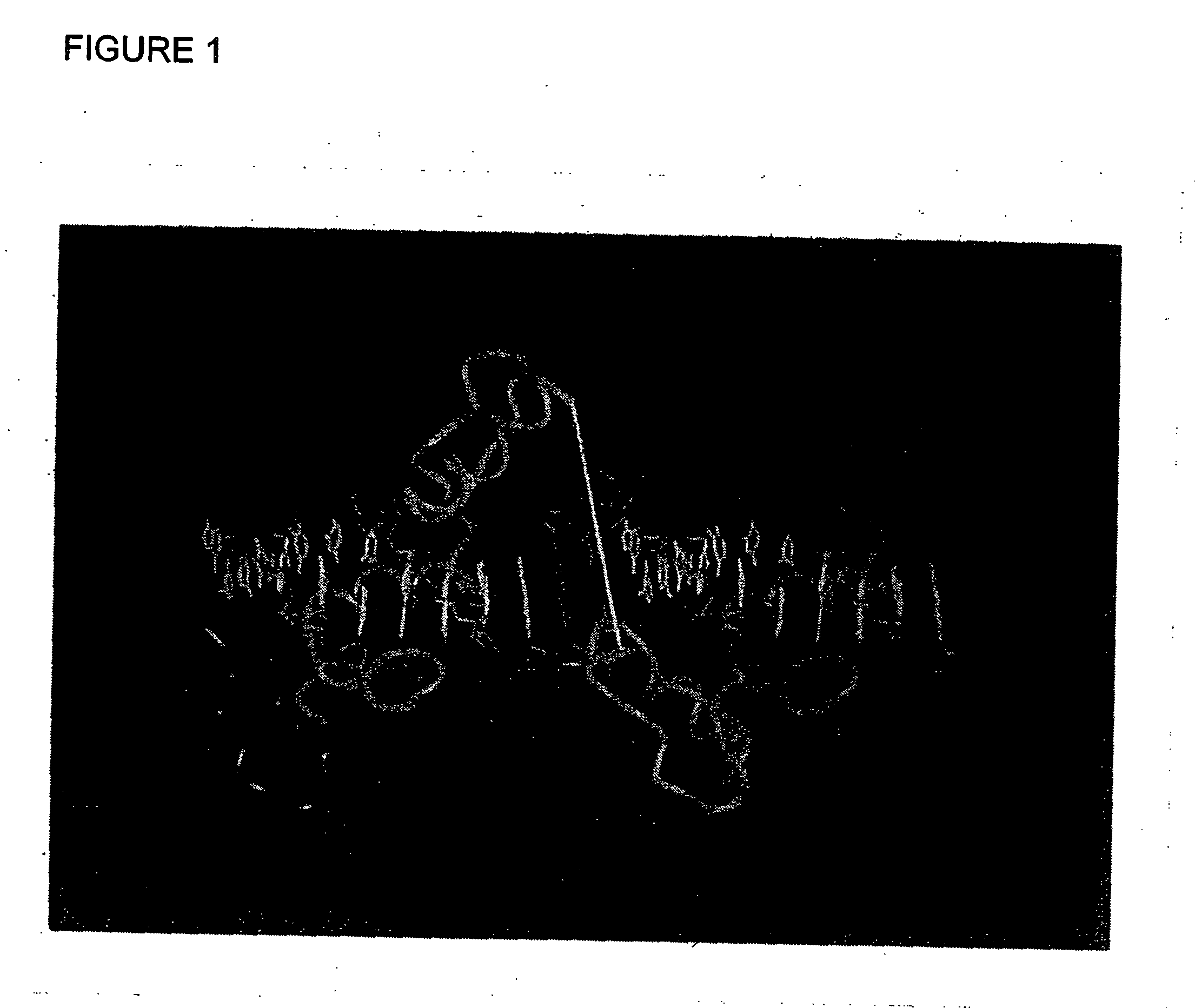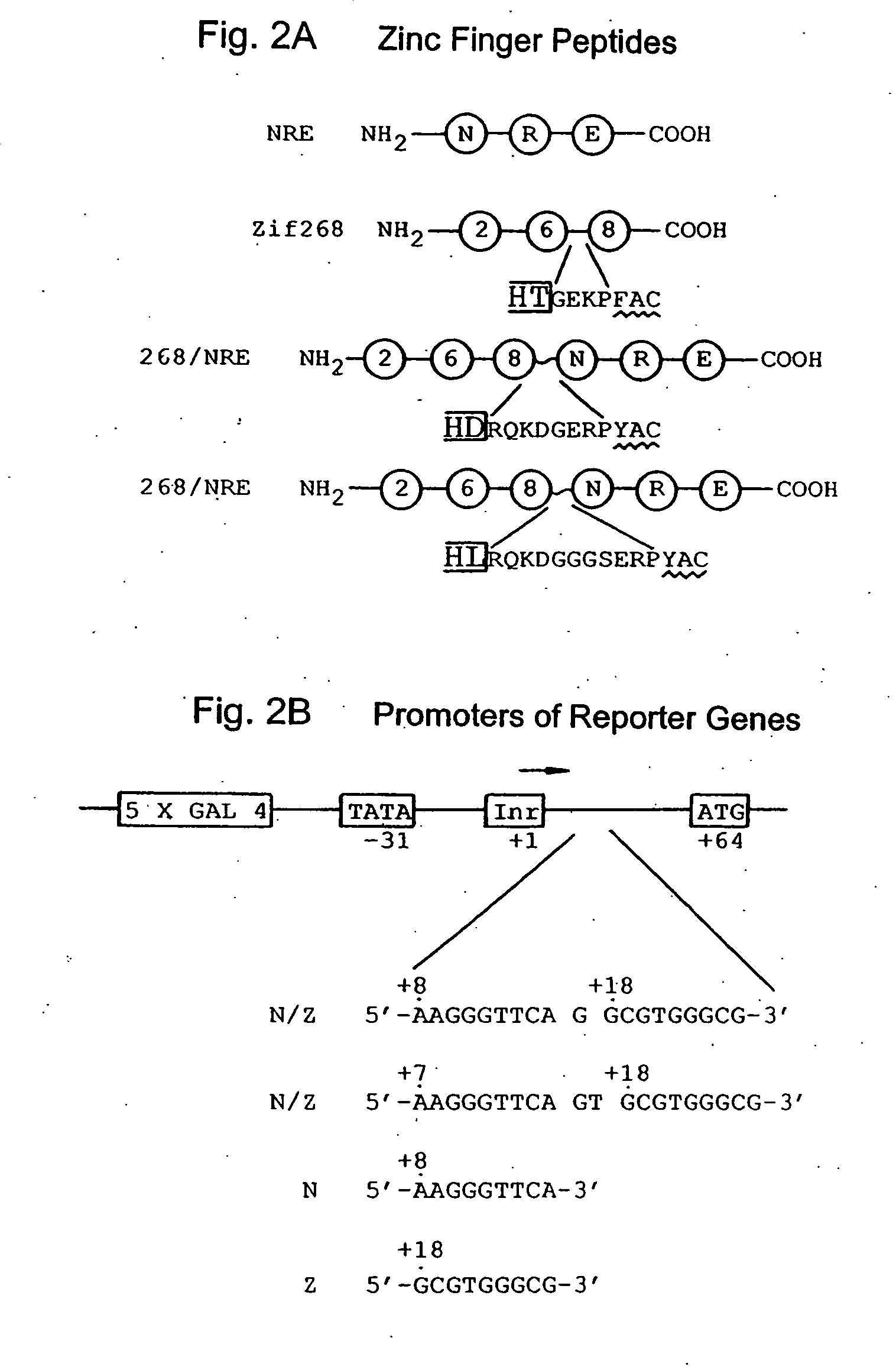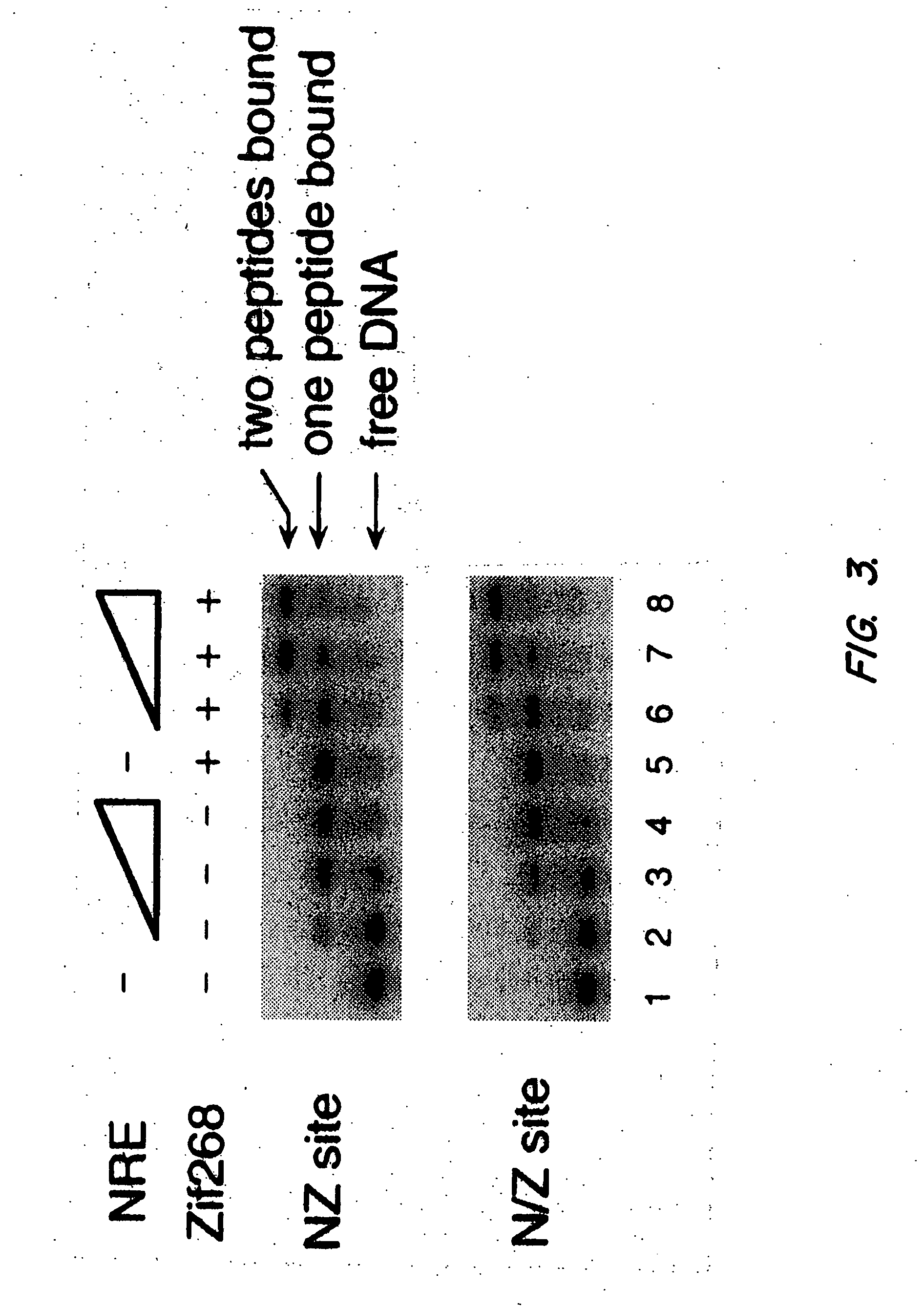Poly-zinc finger proteins with improved linkers
a technology linkers, applied in the field of polyzinc finger proteins with improved linkers, can solve the problems of relative modest increases in affinity, and achieve the effects of enhanced affinity and specificity, and high levels
- Summary
- Abstract
- Description
- Claims
- Application Information
AI Technical Summary
Benefits of technology
Problems solved by technology
Method used
Image
Examples
examples
[0115] The following examples are provided by way of illustration only and not by way of limitation. Those of skill in the art will readily recognize a variety of noncritical parameters that could be changed or modified to yield essentially similar results.
[0116] Methods
[0117] Plasmid construction. Zinc finger expression plasmids used in transfection studies were constructed by PCR amplification of DNA segments encoding the desired fingers of the Zif268 peptide and / or the NRE peptide. These DNA segments were inserted into the HindIII and BamHI sites of pCS, which had been constructed by subcloning an oligonucleotide duplex 5′-AGCTACCATGGCCAAGGAAACCGCAGCTGCCAAAT TCGAAAGACAGCATATGGATTCTAAGCTTCGCGGATCCT-3′ (SEQ ID NO: 1) 5′-CTAGAGGATCCGCGAAGCTTAGAATCCATATGCTGTCT TTCGAATTTGGCAGCTGCGGTTTCCTTGGCCATGGT-3′) (SEQ ID NO: 2) into the HindIII and XbaI sites of pcDNA3 (Invitrogen). These expression plasmids were designed to produce zinc finger peptides with both an S-peptide tag (Kim & Raines,...
PUM
| Property | Measurement | Unit |
|---|---|---|
| concentration | aaaaa | aaaaa |
| concentration | aaaaa | aaaaa |
| concentration | aaaaa | aaaaa |
Abstract
Description
Claims
Application Information
 Login to View More
Login to View More - R&D
- Intellectual Property
- Life Sciences
- Materials
- Tech Scout
- Unparalleled Data Quality
- Higher Quality Content
- 60% Fewer Hallucinations
Browse by: Latest US Patents, China's latest patents, Technical Efficacy Thesaurus, Application Domain, Technology Topic, Popular Technical Reports.
© 2025 PatSnap. All rights reserved.Legal|Privacy policy|Modern Slavery Act Transparency Statement|Sitemap|About US| Contact US: help@patsnap.com



